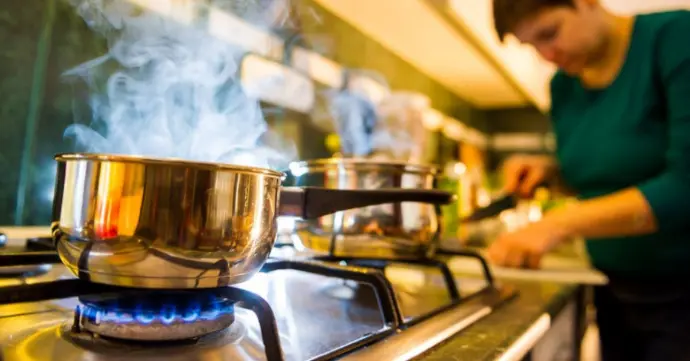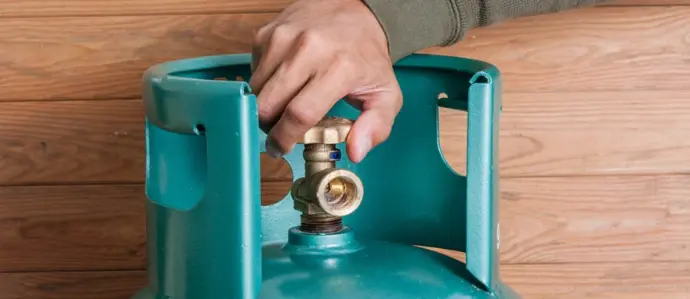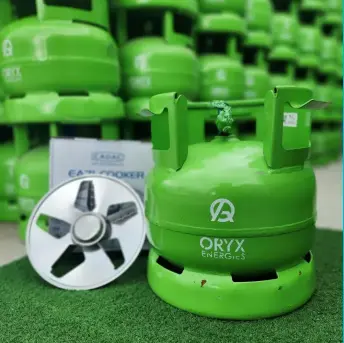When it comes to Liquefied Petroleum Gas (LPG), there are plenty of myths and misconceptions that make some people hesitant to use it. From fears of explosions to concerns about leaks, misinformation often overshadows the truth about this safe, efficient, and eco-friendly fuel source.
In reality, LPG is one of the safest and most reliable energy options available – when used correctly. In this blog, we will bust some of the most common LPG safety myths and set the record straight with facts.
Myth # 1: LPG Cylinders Can Explode Easily
The Truth: LPG cylinders do not just explode on their own like in the movies
One of the biggest fears people have is that LPG cylinders are ticking time bombs, ready to explode at any moment. In reality, LPG cylinders are designed with multiple safety features, including pressure relief valves and high-strength steel construction, to prevent accidents.
For a LPG cylinder to explode, there would need to be extreme circumstances, such as prolonged exposure to fire or excessive physical damage – situations that are unlikely with proper handling and storage.
Safety Tip: Always store your LPG cylinder in a well-ventilated area, away from direct heat sources, and follow manufacturer guidelines for use.
Myth #2: You Can't Detect an LPG Leak Until It's Too Late
The Truth: LPG has a strong, distinct smell added to it for easy detection.
LPG itself is actually odourless, but manufacturers add a special odourant called ethyl mercaptan, which gives it a strong, unpleasant smell (often compared to rotten eggs). This makes it immediately noticeable if there is a leak, even in small amounts.
Safety Tip: If you ever smell gas in your home:
- Turn off the gas supply immediately.
- Do not use electrical switches, lighters, or open flames.
- Open windows and doors for ventilation.
- Call a professional to inspect the system before using it again.
Myth # 3: LPG is Unsafe for Indoor use
The Truth: LPG is safe indoors when properly installed and ventilated.
Some people believe that using LPG appliances indoors is dangerous. The truth is, LPG is perfectly safe for indoor cooking, heating, and hot water systems, as long as:
- The appliance is installed by a certified technician.
- There is adequate ventilation to allow combustion gases to escape.
- The LPG system is maintained and checked regularly.
Unlike solid fuels like wood or charcoal, LPG produces far fewer indoor air pollutants, making it a cleaner and healthier choice for home use.
Safety Tip: Ensure your LPG appliances meet safety standards and that your home has proper ventilation.
Myth # 4: LPG is More Dangerous Than Electricity
The Truth: Both electricity and LPG can be hazardous if misused.
Every energy source – whether electricity, LPG, or solid fuel – comes with safety risks if not handled properly. However, LPG has a strong safety record when used according to manufacturer guidelines. In fact, LPG-powered appliances are often more reliable than electrical ones, especially in areas prone to loadshedding or power surges, which can cause electrical fires or damage appliances.
Safety Tip: Whether using LPG or electricity, always follow safety precautions, use certified appliances, and conduct regular maintenance.
Myth # 5: It's Unsafe to Store LPG Cylinders at Home
The Truth: LPG cylinders are designed for safe home storage when guidelines are followed.

Many people worry that having a LPG cylinder at home is a major safety risk. However, as long as it is stored correctly, there is no danger in keeping an LPG cylinder at home.
Proper LPG storage includes:
- Keeping the cylinder upright at all times.
- Storing it in a well-ventilated area.
- Keeping it away from heat sources, flames, and electrical outlets.
Safety Tip: Never store LPG cylinders in basements, closed cupboards, or near flammable materials.
Myth # 6: LPG is Bad for the Environment
The Truth: LPG is one of the cleanest fossil fuels available.
Compared to coal, wood, and diesel, LPG produces significantly fewer carbon emissions and does not release harmful pollutants like sulfur dioxide or black smoke. This makes a more eco-friendly option for both home and commercial use. Additionally, LPG's high energy efficiency means that it burns cleaner and provides more energy output per unit of fuel compared to many traditional fuels.
Safety Tip: If you are looking for an energy-efficient, low-emission fuel, LPG is one of the best choices available today.
Final Thoughts: LPG is Safe, Efficient, and Reliable
LPG safety concerns often stem from misinformation rather than real risks. When handled correctly, LPG is one of the safest, most efficient, and environmentally friendly energy sources for homes and businesses.
By following proper safety practices and understanding how LPG works, you can enjoy all its benefits without worry.
Looking for safe and reliable LPG solutions? Choose high-quality LPG appliances and always work with certified professionals for installation and maintenance.
With the right knowledge and precautions, LPG can be a game-changer for your home – offering safety, convenience, and peace of mind every day!
Check out the snippet of a MythBusters episode:




